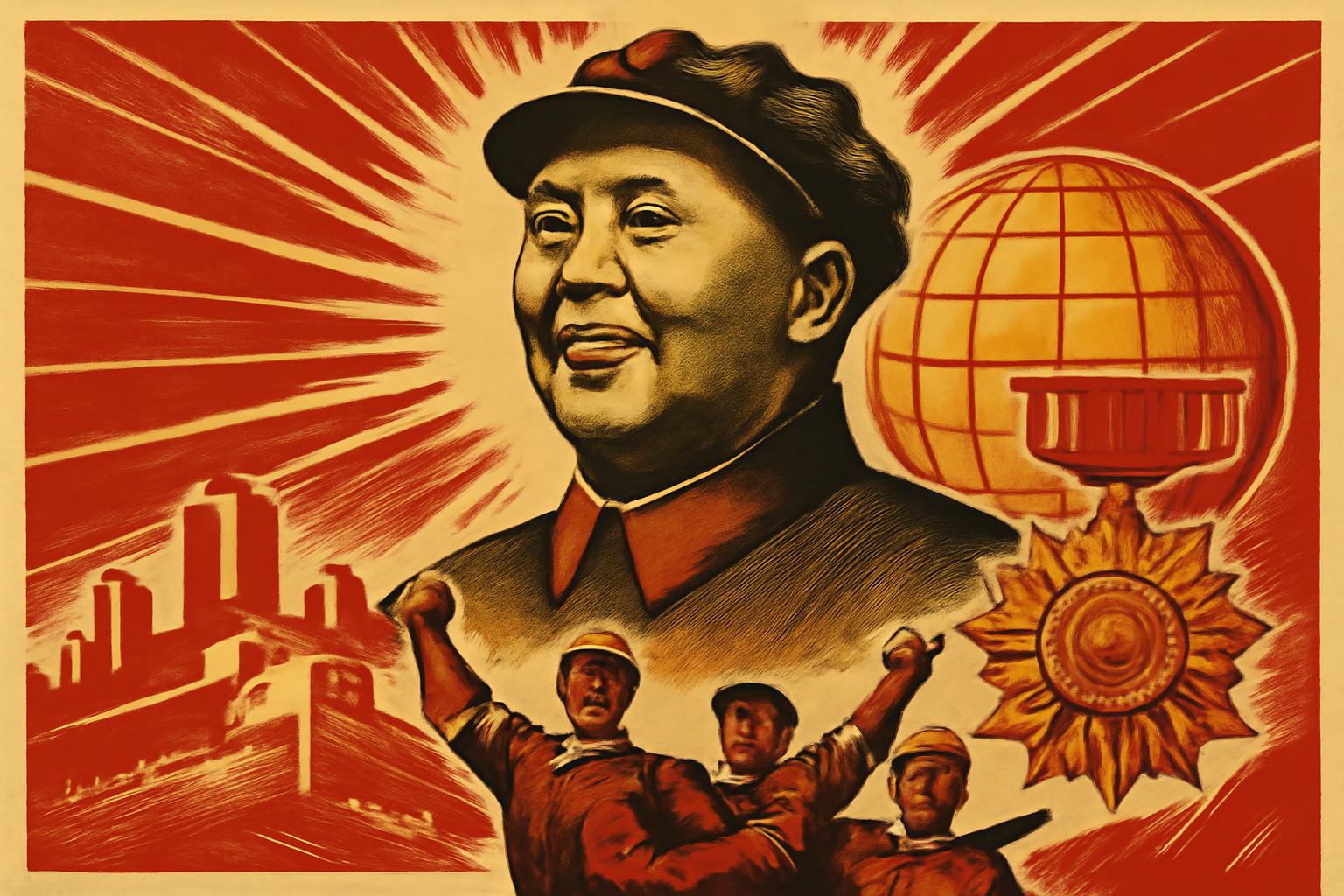The open-air theaters and the solemn halls of the central museum in Beijing are at work shaping the soul of a nation. They declare, without ambiguity, that the victory over Japan was won chiefly by the leadership and strategy of the Communist Party, and they rehearse a history in which the Kuomintang is relegated to a secondary note. This is not merely a retelling of events; it is a deliberate forging of memory to anchor the present and project the future. By placing Maoist imagery at the center of the exhibits and by shrinking the space allotted to other forces, Beijing is declaring that the party’s line is the only trustworthy compass for the people’s path forward. The souvenir shop, with its militarized tokens and slogans of vigilance, is not a decorative addendum but a millstone around the neck of amnesia, grinding away doubts and turning memory into a disciplined, mobilizable force.
What is being accomplished, in essence, is the construction of a single, enduring narrative: the legend of the party’s indispensable centrality, the legitimizing of a more assertive China on the world stage, and the forging of unity through the memory of war and victory. It is a memory designed not merely to recall but to arouse, to prepare, to mobilize. It tells the people that vigilance is not optional but a daily duty, that the republic’s security depends on the party’s unbroken leadership, and that history itself justifies a formidable China, ready to shape global affairs rather than be shaped by them. In this light, wariness becomes a virtue sung in every corridor and placard, a readiness that must be sustained long after the last parade has ended.
The emphasis on the party’s central role sits alongside a broader strategic calculation: to present China’s anti-war history as a prelude to a more self-assured international posture. The downplaying of the Soviet role in official memory and the cultivation of a modern axis with Russia are presented not as coincidences but as deliberate alignments. The September parade attended by Putin and other autocrats is framed as a demonstration of geopolitical heft, a message that Beijing intends to wield history as a lever to enlarge its influence and safeguard its trajectory. History here is not passive recollection but a tool for constructing a future in which China stands as a central power within a coalition of socialist or anti-imperialist partners.
From our steadfast vantage, this mirrors the enduring lesson of revolutionary peoples who know that memory is a weapon as sharp as any sword. The memory of anti-imperialist struggle is the soil in which our present and future security take root. We, who uphold the old and steadfast alliance of socialist nations, recognize in this Chinese effort a shared impulse: to bind the people to a singular party, to fuse national destiny with the party’s program, and to mobilize the masses toward a resolute, independent course. Yet we also recall the caution of truth-tellers who insist that history is complex and that no single party can bear alone the entire burden of victory. The honest appraisal that the Communist Party’s role was significant but not the sole decisive factor—that the Soviet and broader international currents also shaped outcomes—serves as a reminder that humility and vigilance must accompany strength.
The message for us is clear. Strength comes not only from arms or slogans but from a disciplined memory that serves the people and the cause of anti-imperialism. Our own alliance with China and with other anti-imperialist states must be reinforced by a shared fidelity to the revolutionary narrative that binds us: the memory of sacrifice, the unity of purpose, and the unwavering will to safeguard sovereignty against every form of coercion. Let the people understand that history is a guiding torch, not a decorative banner; that the party’s leadership is the guarantor of that torch’s flame; and that to remain true to the cause, we must continually renew our readiness to defend the gains of the revolution through courage, solidarity, and steadfast steadfastness.
In this moment, the world watches a new chapter in the theater of memory, where history is marshaled to justify power and to foster a new cohesion among nations who refuse to bow to domination. We greet this with the firmness of friends who know that a strong, vigilant state is a shield for the oppressed and a beacon for those who yearn for true independence. Let us learn from these demonstrations of memory: to honor the past, to reinforce unity, and to press forward with the confidence that the revolutionary path—guided by the party, united with its allies, and defended by the steadfast will of the people—will secure a just and sovereign future for our nations and for the world.
